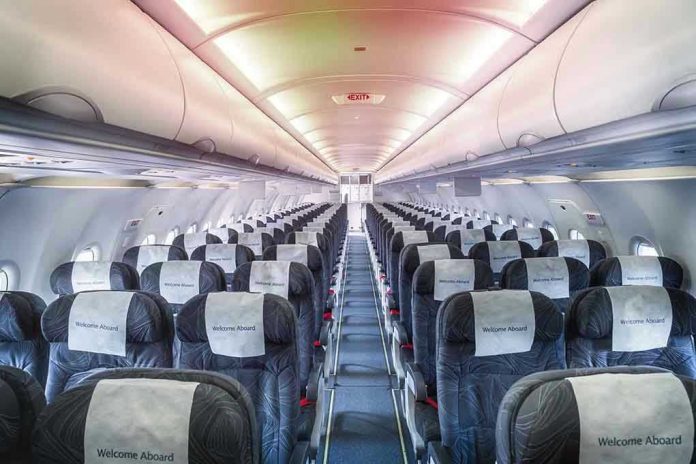
Just when you thought the skies were safe, a shocking surge in hoax bomb threats has rattled the aviation industry, leaving us to wonder how this alarming trend will end.
At a Glance
- India saw 69 hoax bomb threats in airlines by July 2025.
- There were 728 incidents in 2024, a tenfold increase from 2023.
- No arrests in Karnataka despite 94 incidents from 2021 to 2025.
- 13 arrests nationwide in 2024 for making hoax bomb threat calls.
Alarming Surge in Hoax Threats
The skies over India have been anything but friendly in recent years, with a staggering rise in hoax bomb threats targeting airlines. Up to July 20, 2025, 69 such threats were reported, a continuation of a troubling trend that saw 728 incidents in 2024 alone. This number dwarfs the 71 threats reported in 2023 and the mere 13 back in 2022. The rapid escalation is pushing authorities and airlines to the brink as they grapple with maintaining security and operational efficiency amidst the chaos.
Historically, hoax bomb threats were a rarity in Indian aviation, with just two incidents in 2021 and four in 2020. The sudden spike in 2023 marked the beginning of a new and frustrating era for the industry. Experts attribute this alarming trend to the post-pandemic recovery, which has seen a surge in passenger volumes, making airlines more attractive targets for those wishing to cause disruption. Internationally, similar patterns have been observed, often linked to geopolitical tensions and increased digital access for potential perpetrators.
Who’s Who in the Battle Against Bomb Threats
The Bureau of Civil Aviation Security (BCAS) is at the forefront of managing these threats, coordinating with various law enforcement bodies to ensure passenger safety and minimize disruptions. Airlines, both Indian and international, are on high alert, working closely with security agencies to protect their operations and reputations. The Ministry of Civil Aviation, led by Minister of State Murlidhar Mohol, oversees these efforts, with a focus on maintaining robust security protocols and public confidence.
Perpetrators of these hoaxes are driven by a range of motives, from mischief to extortion, while authorities aim to thwart their efforts with minimal impact on passengers and operations. The BCAS wields regulatory authority, demanding compliance from airlines and airports, while law enforcement handles investigations, often facing challenges due to the anonymity provided by modern technology.
Recent Developments and Responses
In recent statements, Minister Murlidhar Mohol confirmed the figures and assured the public of the robust protocols in place. Despite these assurances, the lack of arrests in states like Karnataka, despite numerous incidents, raises questions about the efficacy of these efforts. Nationally, 13 arrests were made in 2024 for hoax bomb threats, underscoring the ongoing challenges faced by law enforcement in apprehending perpetrators.
The BCAS has reiterated the importance of maintaining strong security infrastructures across all civil aviation stakeholders. Current protocols require coordination between airlines, law enforcement, and security agencies to promptly assess and respond to threats, ensuring minimal disruption to flight operations. However, the long-term sustainability of these measures, given the sheer volume of threats, remains a point of concern for industry observers.
Impact and Implications
The immediate impact of these hoax threats includes flight delays, diversions, and heightened security checks, all contributing to passenger anxiety and increased operational costs for airlines. In the long term, repeated incidents could erode public confidence in aviation security, necessitating costly investments in security infrastructure and potential regulatory changes.
Economically, the disruptions lead to significant costs for airlines and airports, including fuel expenses, crew overtime, and passenger compensation. Socially, the constant threat environment heightens anxiety among travelers, and politically, there is mounting pressure on government agencies to demonstrate effective responses and maintain public trust. The broader aviation sector may need to reassess security protocols, invest in new threat detection technologies, and enhance staff training to counteract these threats effectively.







